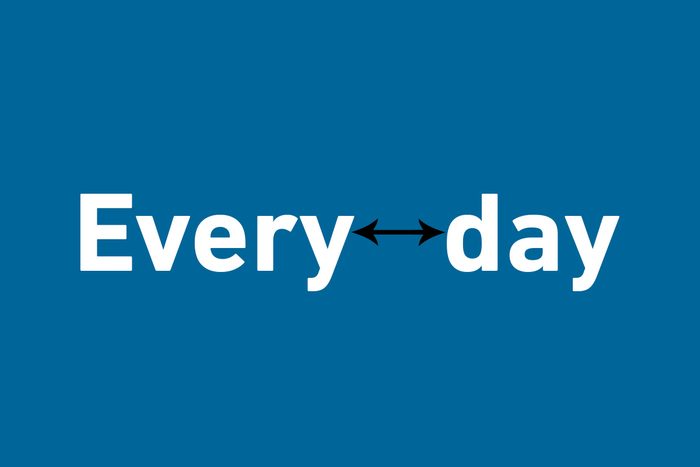
Every day
If you spend a lot of time scrolling through social media, you might, indeed, see this error every day. Yes, “every day,” two separate words. This error—writing “everyday” when you mean “every day”—is one of the most common, if not the most common, incorrect combinations of separate words. The confusion most likely comes from the fact that “everyday” is a word, but people often use it when they actually mean “every day.” Yup, the confusion is understandable.
So what’s the difference? Well, “every day” is a phrase, with “day” as the noun. Together, the phrase describes frequency, just like “every time” or “every year.” It means the same thing as “each day.” “Everyday” is a word of its own, an adjective that modifies something else. It can also be a noun (“I decided to go on vacation to escape the everyday”). But, whether adjective or noun, “everyday” means ordinary or commonplace. So you would wear your everyday clothes on a day you’re not going out, but you love your significant other more every day. If you’re unsure which of the two to use, Grammarly recommends seeing if “each day” would make sense in the same place. If it would, you mean “every day” as two words. Find out some more words and phrases you’ve probably been using wrong.
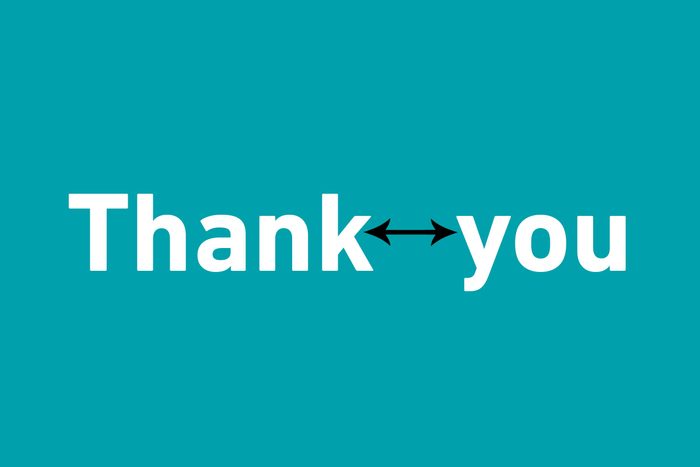
Thank you
Gracias, grazie, merci—many languages use only a single word to say thank you. English is not one of them. While just saying “thanks” is a linguistically valid way to express your gratitude, the two words “thank” and “you” should not be written as a single word. Sometimes you’ll see “thank you” hyphenated, especially as an adjective (“a thank-you card”), but just “thankyou” is incorrect. Find out the difference between anymore versus any more.
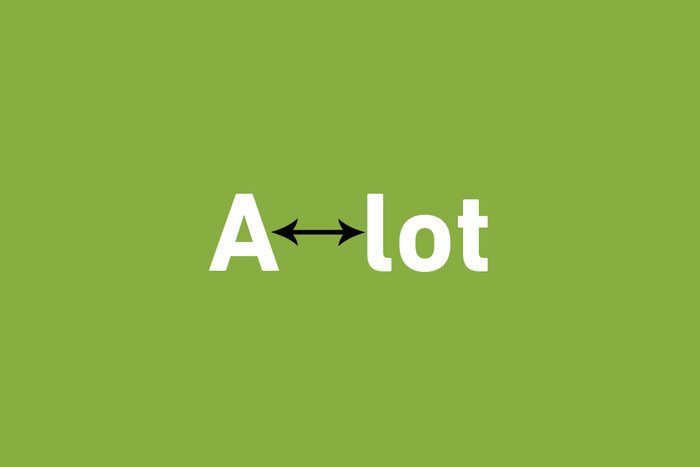
A lot
You very rarely, if ever, see “a little” written as a single word, and yet its opposite, “a lot,” trips people up all the time. No, there’s no such word as “alot.” If you’re speaking about a large number of things or something that happens frequently, you want to use “a lot.” To really show off your linguistic prowess, write that you do something “a lot—almost every day, to be exact!” and you’re sure to hear your grammar nerd friends squeal with delight. “Allot,” a verb that means divvy out or assign something, is a word, but it’s totally distinct from “a lot.” Check out these common words that nearly everyone misspells.
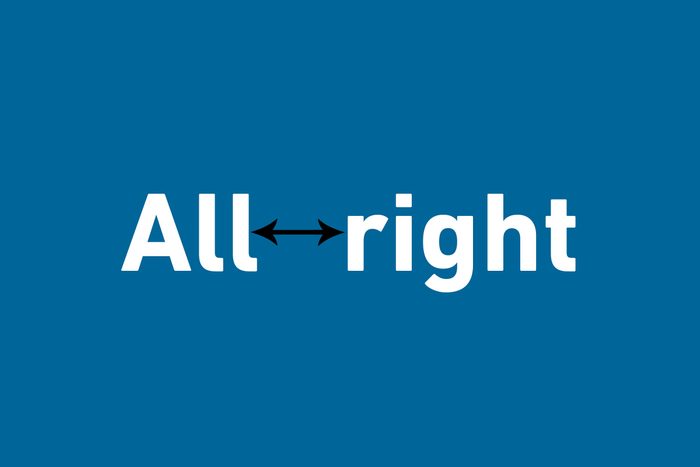
All right
Chances are, you’ll see these two words written as “alright” more often than “allright.” Dictionary.com guesses that this spelling came about from people mistakenly styling “all right,” two distinct words, in the same style as words like “already” and “altogether.” Even though it’s not technically “proper” English, “alright” has become so widespread that most dictionary sites and grammarians do accept it as a variation on “all right,” acceptable for a more casual or conversational tone. After all, it seems doubtful that even the strictest grammarians would insist that Matthew McConaughey’s drawling catchphrase is six separate words. Learn about some more grammar rules that it’s probably all right if you ignore.
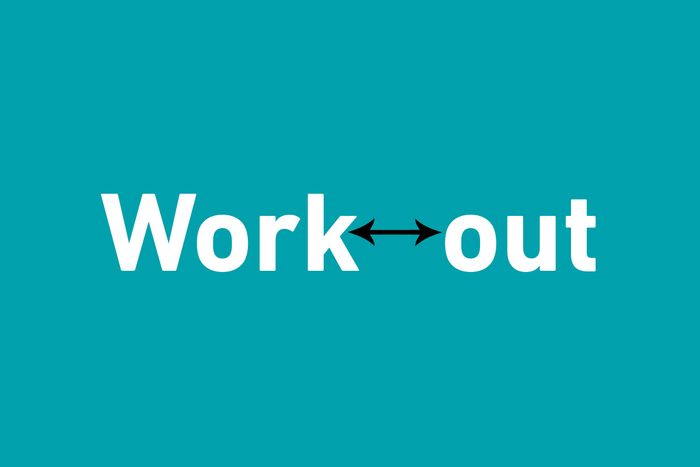
Work out
Deciding whether it’s correct to use “work out” or “workout” can be, well, a mental workout. Both are correct in some cases; it’s just a matter of which is which. Some phrases, including “work out,” are two separate words when used as a verb phrase, but only one when they’re a noun or an adjective. That’s why “workout,” as in, “I’m gonna get a quick workout in before dinner,” is correct, but “What time of day do you like to work out?” is also correct. And in case of the less common use of “workout” as an adjective, it’s also a single word. So “I’m going to go workout” is incorrect, but “I’m going to go workout clothes shopping” is totally fine.
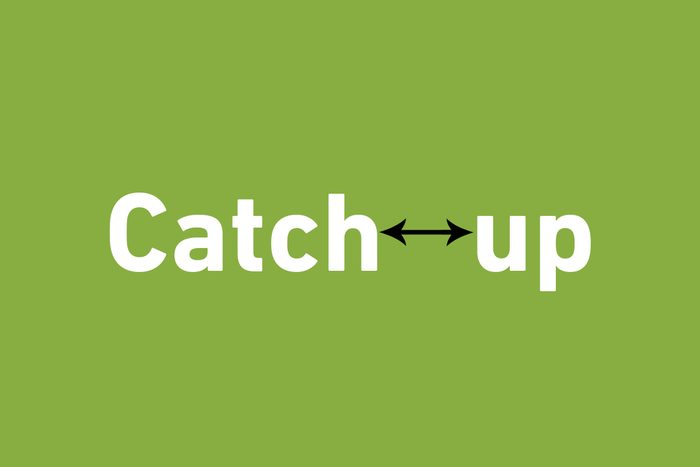
Catch up
“Catchup on ‘This Is Us’ and then call me!” What you’re really saying when you write the phrase this way is that you somehow have a tomato-based condiment on a TV show. “Catchup” as one word doesn’t mean anything, except an old-fashioned spelling of ketchup. When you’re using the verb phrase “catch up,” make sure it’s two words. Even in the case of the expression “playing catch-up,” you’ll probably see it hyphenated, but not as a single word. Then find out the grammar rules your teacher lied to you about.
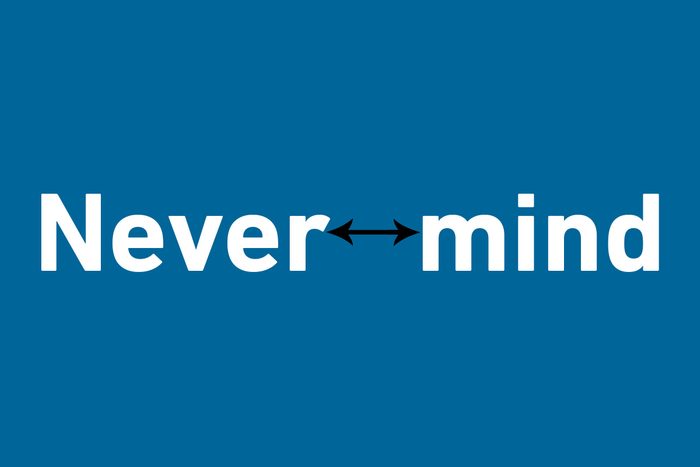
Never mind
Blame Nirvana’s famous album for the fact that people write “never mind” as a single word. That album, and the fact that most people hastily blurt the phrase all at once while trying to negate something they just said. Regardless of how quickly they’re saying it, though, “never mind” should be two separate words. There is actually a one-word noun form of “nevermind,” but you’ll hardly ever hear it; it’s a pretty old-fashioned way to say “attention,” and is most often used with a double negative, i.e. “Don’t pay no nevermind to what I said yesterday.” You might more commonly hear people say “pay no mind” to mean the same thing. Other than that, it should always be two words (unless you’re having a discussion about rock music, of course.) Find out the words even smart people mispronounce.
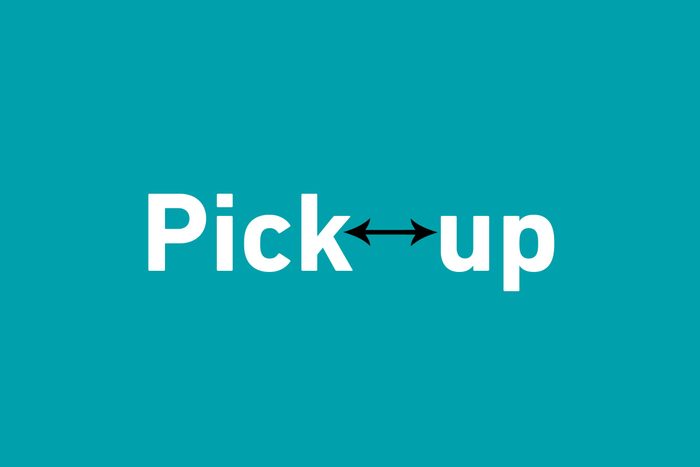
Pick up
Another instance of the “verb-versus-noun” confusion is “pick up/pickup.” Like “workout,” “pickup” is a single word when you’re using it as a noun. “I ordered an Uber for us—the pickup is in 20 minutes.” But if you’re using “pick up” as a verb phrase, it should be separate. The same goes for the expression “pick up on.” To make matters more complicated, “pickup” can also be an adjective, and if it is, it’s also only one word—as in the case of “pickup lines” or “pickup truck.” But you’re going to pick up some groceries, pick up some heavy weights at the gym, or pick up on the sarcasm in someone’s remark.
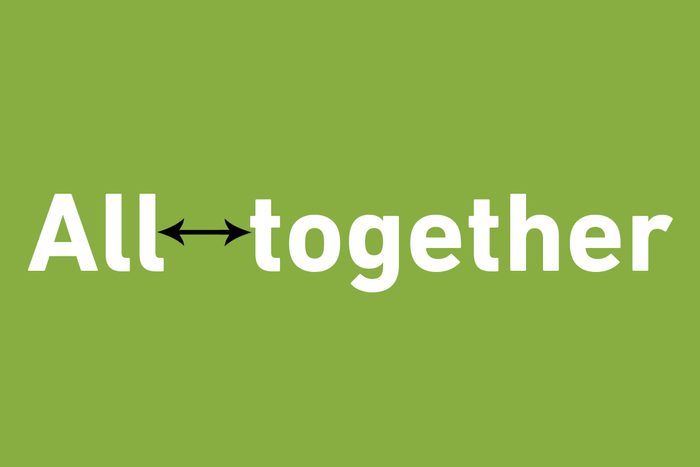
All together
Unlike the “all right/alright” confusion, “altogether” isn’t a casual variation on its two-word counterpart. “Altogether” actually is a real word, but it doesn’t mean the same thing as “all together.” If you’re talking about a group of people or things that are united, they’re “all together.” But “altogether” is an adverb that means wholly, completely, or overall. You can express excitement that the Avengers are going to defeat Thanos “all together,” and/or that, when the Avengers are finished with him, Thanos will be “altogether vanquished.” Both are correct. Watch out for these other words you think are synonyms, but aren’t.
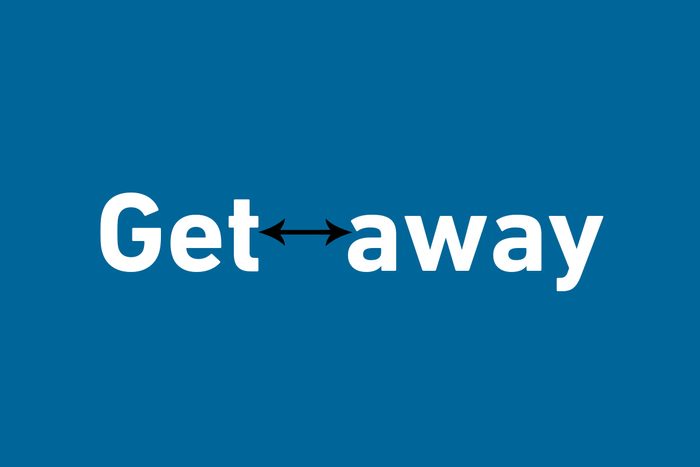
Get away
Just like “work out” and “pick up,” “get away” has a one-word form and a two-word form, and they’re easy to mix up. But the same rules apply—it’s one word, “getaway,” as a noun, but when you’re using it as a verb phrase, it should be two separate words, “get” and “away.” This one might be especially tricky because the noun form, the one-word form, is the more common of the two, at least in contexts like social media. If you’re taking, or yearning for, a tropical getaway, you’re using it as a noun and it should indeed be one word. The same goes for if you’re using it as an adjective, i.e., “getaway car.” But if you’re using it as a verb—if you need to get away from it all, or want someone to get away from the delicious chocolates you’re not interested in sharing—it should be two words.
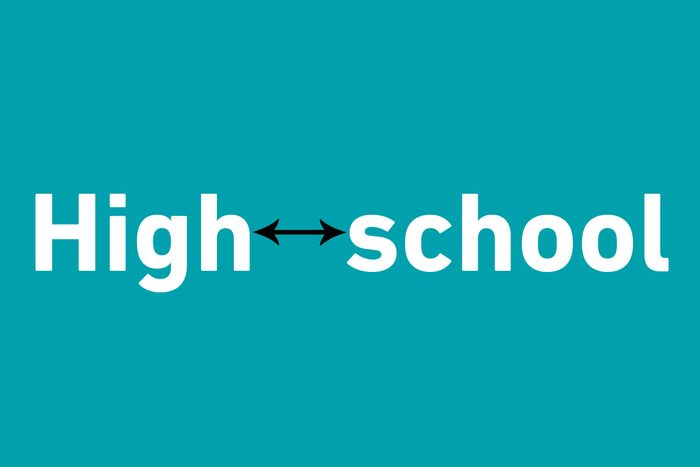
High school
You won’t see “elementaryschool” written as one word, and, to be fair, this offense is a pretty uncommon one. Yet, every now and again, you’ll spot a rogue “highschool.” Incorrect. Even in cases where it’s used as a modifier, like “high school yearbook” or “high school–age kids,” it’s still two separate words. Need some extra help? Here are the best online grammar check programs.
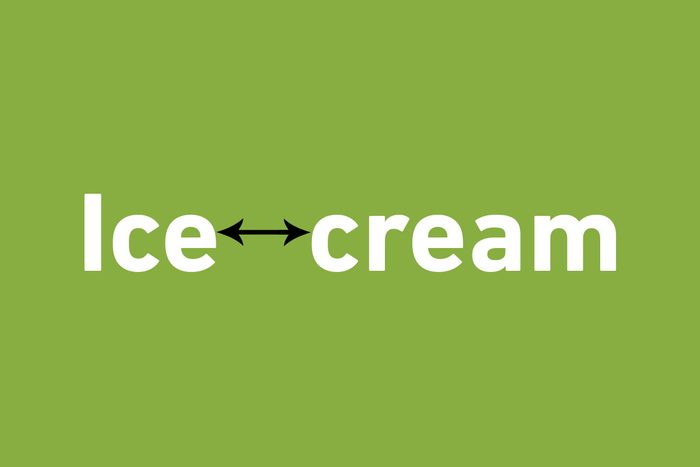
Ice cream
We all scream for ice cream, but grammar nerds might scream if you call it “icecream.” Think of it as a treat so delicious that no single word could do it justice. Even as an adjective, you might see it hyphenated—think “ice-cream cone” or “ice-cream shop”—but never as just one word. Next, put your skills to the test and see if you have mastery of the 20 most confusing grammar rules in English.
